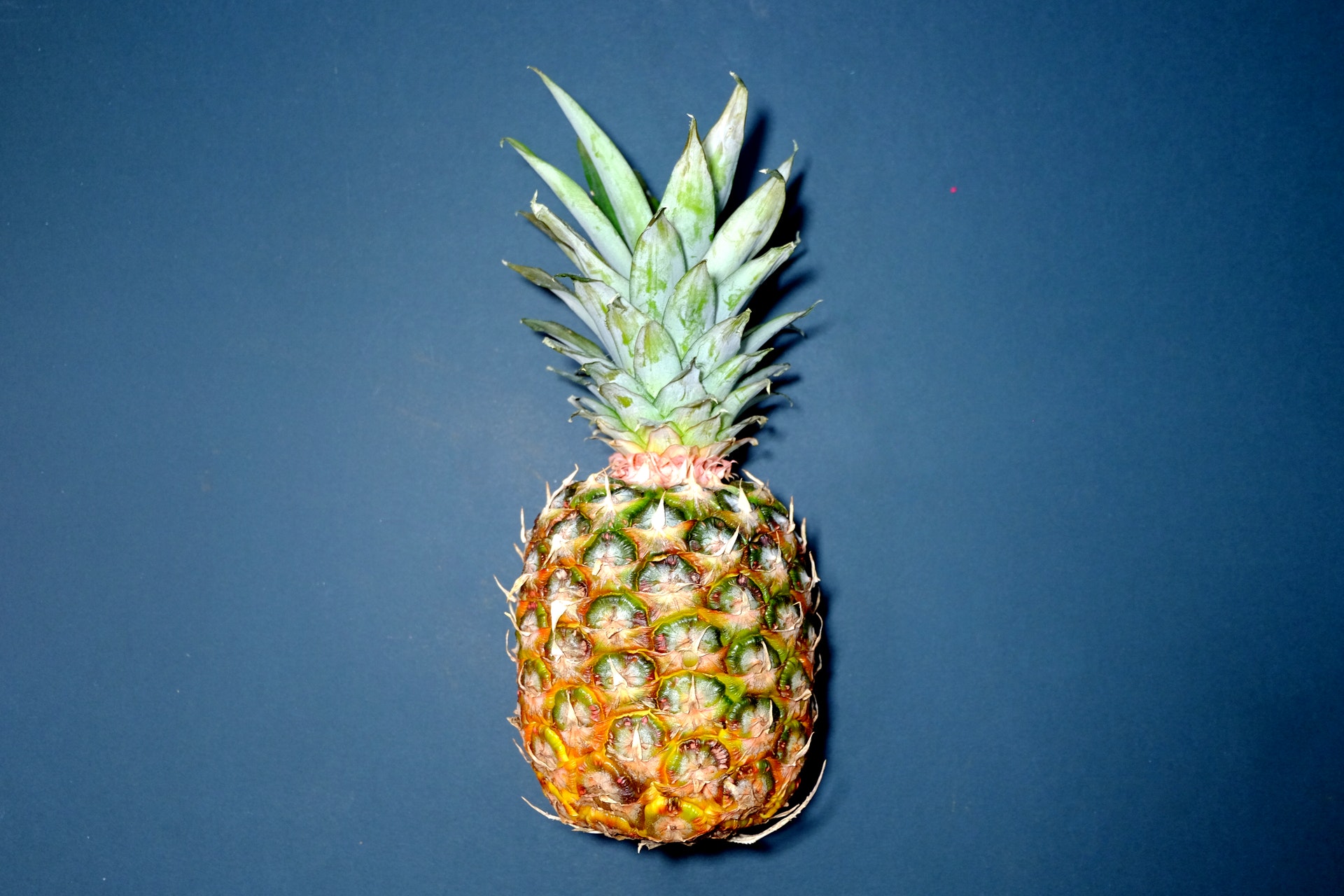
Body + Mind is reader-supported. We may earn an affiliate commission when you buy through some of the links on our site.
The big day came — and passed you by with nary a twinge of pain. Is your baby ever going to come? Is there anything you can do to nudge things along?
Perhaps the answer lies as close as your dinner plate. It also helps to know what to avoid earlier in pregnancy. Here are ten foods that help induce labor.
If you have chronic migraines or pain of any kind, you might know about the magic of bromelain. This substance exists in pineapple — it’s one of the reasons the fruit typically appears in dishes with dense meats, like ham. It helps break down the proteins in fibrous tissue. Some experts believe it could encourage the cervix to loosen.
While there’s relatively little research to prove this fruit’s efficacy, pregnancy boards abound with claims that it works. One 2016 study indicated that consuming the fruit may cause uterine contractions, inducing labor. Folk science says fresh fruit is best, but be cautious — eating too much can cause nausea and diarrhea.
If you’re trying to become pregnant, you should avoid unripe papaya. The opposite goes if you’re past week 40.
Papaya contains an enzyme called papain that acts like prostaglandin and oxytocin in the body. The combination of these two substances is used to induce labor and strengthen contractions.
If you want to decrease your time in labor — who doesn’t? — nosh on dates. One 2011 study followed women who ate six of these fruits a day for four weeks leading up to delivery. They had a shorter initial stage and a higher mean cervical dilation upon arriving at the hospital.
Like all dried fruits, dates are high in calories and sugar, so consume them in moderation. Perhaps add a handful as your after-dinner dessert after week 36.
Despite a lack of scientific evidence, some women swear by eggplant for inducing labor. If you’re looking for a meatless Monday dish, perhaps a bit of parmesan is in order?
The folk tale is so pervasive that one restaurant made it their claim to fame. Scalini’s, an Italian restaurant in Cobb County, GA, has a recipe multiple women claim has put them into labor.
Black licorice contains a substance called glycyrrhizin, which affects your cortisol levels. This stress hormone also induces labor.
However, use caution when taking black licorice, especially if you have a heart condition. Too much can spike your blood pressure and increase your arrhythmia risk.
Pregnant women should stay away from red raspberry leaf tea until week 32 of pregnancy because of its uterine-relaxing effects. However, it’s beneficial if you’re looking at your watch while saying, “C’mon, baby.”
You should sip on this substance to make labor easier. One study found that it decreased the second stage by ten minutes. Another suggested that those who used red raspberry leaf tea products in the final weeks were less likely to need a C-section.
Black cohosh has a reputation among herbalists for easing menopause. Several studies suggest effects on the female hormonal system, although experts don’t know enough to declare it safe.
Still, you can find teas and supplements containing this herb at health food stores. Always check with your OB/GYN before using it to induce labor.
Balsamic vinegar is mild — could it induce labor? Folk wisdom says yes, but little scientific evidence supports these claims.
Fortunately, most people won’t find the taste enough to wrinkle their noses. If you decide to try this method, pour yourself a shot and belly up to the kitchen counter. You could also fix a nice salad.
Basil is an emmenagogue, a fancy word that means it induces menstruation. Can it do the same for labor?
It depends. Basil does cause your smooth muscles to relax. It’s a member of the mint family, after all, whose leaves are well-known for taming stomach cramps. However, it’s just as likely that it could prevent your uterus from contracting, preventing labor — experiment with care.
Evening primrose oil is a rich source of gamma linoleic acid and vitamin E. It’s thought to work by softening your cervix.
One 2009 study suggested that it can induce labor by influencing prostaglandins. However, it can also cause gastrointestinal upset, so please use caution.
If you’re 40 weeks or more into your pregnancy, you might be more than ready for your little bundle of joy to arrive. Pregnancies that continue too long can require medical intervention. However, you might ease the birthing process by eating more of the above foods that help induce labor.
Your email address will only be used to send you our newsletter, and at any time you may unsubscribe. For more information, see our Privacy Policy.